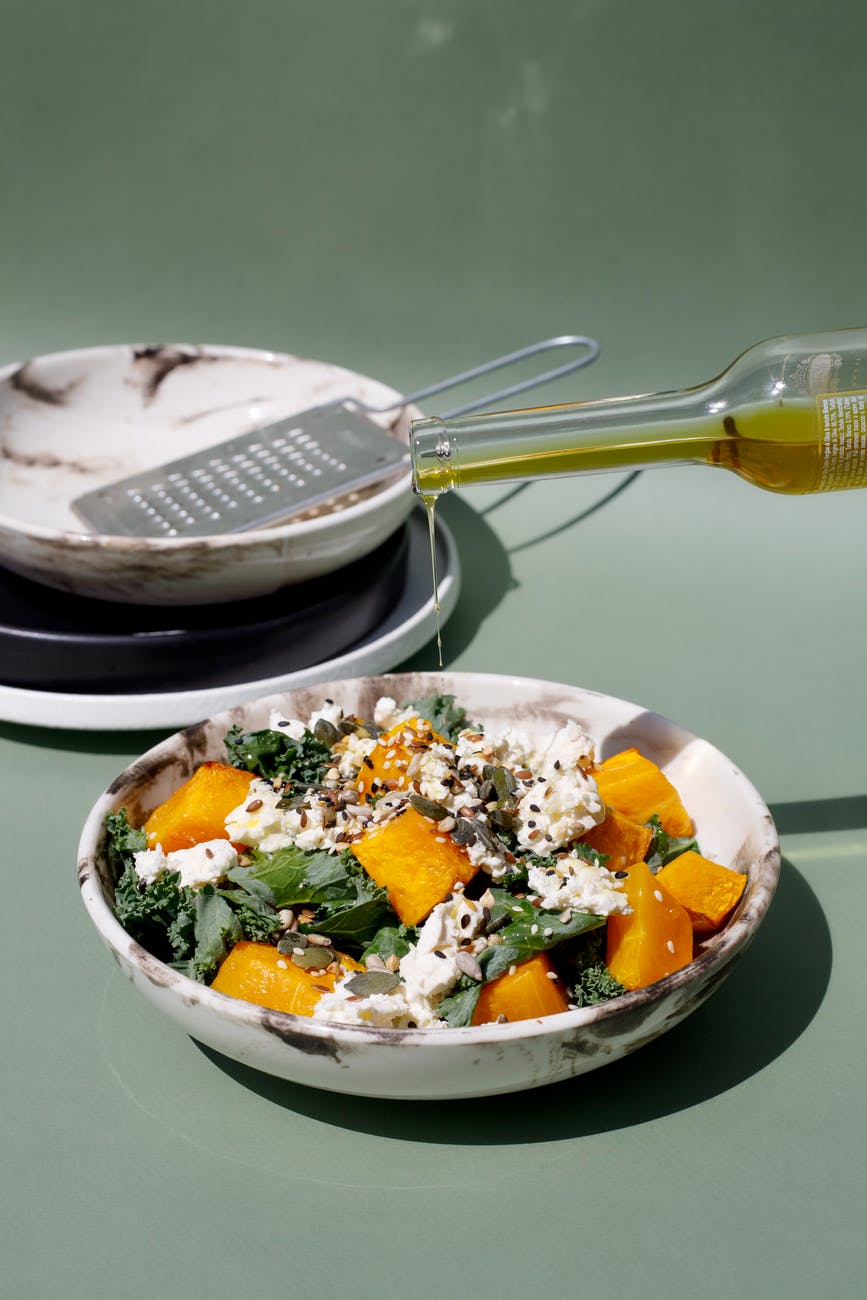
Photo by Ron Lach : https://www.pexels.com/photo/necessary-ingredients-in-italian-cuisine-10048321/
Introduction
The Mediterranean diet has long been celebrated as one of the healthiest and most balanced diets in the world. It is characterized by an abundance of fresh fruits and vegetables, whole grains, lean proteins, and of course, olive oil. Olive oil, a staple of Mediterranean cuisine, is not only a delicious addition to meals but also a key component of a healthy lifestyle.
In this article, we will explore the role of olive oil in the Mediterranean diet and delve into its numerous health benefits. We will also discuss the different types and qualities of olive oil, ways to incorporate it into daily life, the world of gourmet olive oils, and practical tips for finding and choosing the right olive oil.
By the end, you will be equipped with the knowledge to take action and incorporate this valuable ingredient into your healthy lifestyle.
The Mediterranean Diet: A Brief Overview
The Mediterranean diet is not simply a temporary fad but a way of life rooted in the cultures of the countries bordering the Mediterranean Sea. It emphasizes the consumption of plant-based foods, such as fruits, vegetables, legumes, nuts, and whole grains.
Fish and seafood are favored over red meat, and dairy products, such as yogurt and cheese, are consumed in moderation. Central to this dietary pattern is the use of olive oil as the primary source of fat. High in monounsaturated fats and antioxidants, olive oil is known for its protective effects on cardiovascular health, inflammation reduction, and weight management.
Understanding the Health Benefits of Olive Oil
Olive oil is often touted as a superfood due to its exceptional nutritional profile. It is rich in monounsaturated fats, which have been shown to lower bad cholesterol levels (LDL) and reduce the risk of heart disease. The high content of antioxidants, such as polyphenols and vitamin E, helps combat oxidative stress and reduce inflammation in the body.
Olive oil also supports healthy digestion, as it aids in the absorption of key nutrients. Furthermore, studies have suggested that the consumption of olive oil may contribute to weight management, as it helps keep you feeling full, reduces cravings, and promotes a healthy metabolism.
Differentiating Olive Oils: Types and Quality
Not all olive oils are created equal. Understanding the different types and qualities of olive oil is crucial when selecting the best option for your health and culinary needs. Extra virgin olive oil, obtained through cold pressing and containing less than 0.8% acidity, is considered the highest quality and most flavorful option. It retains the most antioxidants and beneficial compounds due to minimal processing.
Virgin olive oil, with slightly higher acidity levels, is also a good choice but may have a milder flavor. Light olive oil, on the other hand, refers to a refined version with a lighter taste, not a lower-calorie option as the name suggests. It is important to note that the source, production methods, and acidity levels determine the quality and integrity of an olive oil. Opting for high-quality olive oil ensures maximum health benefits and flavor.
Incorporating Olive Oil in Daily Life: Cooking and Beyond
The versatility of olive oil makes it easy to incorporate into your daily life. In cooking, olive oil is ideal for sautéing, roasting, grilling, and even baking. Its rich flavor enhances a wide variety of dishes, from simple roasted vegetables to complex pasta sauces and homemade salad dressings.
Olive oil can also be enjoyed in its raw form, drizzled over salads, or soups, or simply enjoyed with a slice of crusty bread. Beyond cooking, olive oil can be utilized in alternative ways, such as skincare and haircare. Its moisturizing and nourishing properties make it an excellent natural option for hydrating and softening the skin and hair.
Exploring Gourmet Olive Oils: A World of Flavors
While all olive oils offer health benefits, gourmet olive oils offer a world of flavors and unique characteristics. The flavor profile of olive oil can vary based on the olive variety, growing region, climate, and production techniques. Some gourmet olive oils have fruity and grassy notes, while others have a more peppery or nutty taste.
Exploring the world of gourmet olive oils opens up a whole new dimension of flavors that can elevate your culinary creations. Drizzling premium olive oil over a freshly prepared dish can add a depth of flavor and complexity that transforms a simple meal into an extraordinary dining experience.
Finding and Choosing the Right Olive Oil
When it comes to choosing the right olive oil, it is essential to consider various factors and make informed decisions. Look for labels that indicate the olive oil’s origin, as different regions have different flavor profiles. Certifications, such as the Protected Designation of Origin (PDO) or the North American Olive Oil Association (NAOOA) seal, can provide reassurance of quality and authenticity.
Trusted sources, such as reputable brands or specialty stores, can help ensure that you are purchasing a genuine and high-quality product. Proper storage is also important, as exposure to heat, light, and air can affect the quality and flavor of olive oil. Storing it in a cool, dark place, tightly sealed, will help preserve its freshness.
Taking Action: Incorporating Olive Oil into a Healthy Lifestyle
Now armed with knowledge about the health benefits, different types, and qualities of olive oil, it’s time to take action and incorporate it into your healthy lifestyle. Start by replacing unhealthy fats, such as butter or margarine, with olive oil in cooking.
Experiment with different olive oil varieties and discover the flavors you enjoy the most. Add a drizzle of olive oil to your salads, soups, and vegetables for an extra burst of flavor and nutrients. Make it a habit to have a small serving of olive oil daily to reap the health benefits consistently. Remember to use moderation and balance, as olive oil, like any other ingredient, should be consumed in reasonable amounts as part of a varied diet.

Photo by Pixabay: https://www.pexels.com/photo/bowl-being-poured-with-yellow-liquid-33783/
Conclusion
Olive oil, a key component of the Mediterranean diet, offers numerous health benefits and a vast array of flavors. By incorporating olive oil into your daily life, you can enjoy its cardiovascular and anti-inflammatory effects, promote weight management, and enhance your culinary creations. Understanding the different types and qualities of olive oil empowers you to make informed decisions when selecting the right option for your needs.
Embrace the world of gourmet olive oils and explore the diverse flavor profiles they offer. By taking action and incorporating olive oil into your healthy lifestyle, you are embracing a tradition that has nourished and delighted the Mediterranean cultures for centuries. Cheers to good health and delicious meals with the golden elixir that is olive oil!

